14 February 2023







Table of Contents:

o Bioprospecting Economy progress.
o Wildlife Economy progress.
o Ecotourism Economy progress.
o Transformational government interventions.


14 February 2023








o Bioprospecting Economy progress.
o Wildlife Economy progress.
o Ecotourism Economy progress.
o Transformational government interventions.

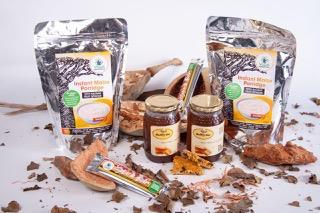
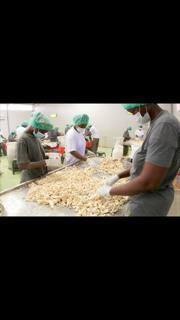
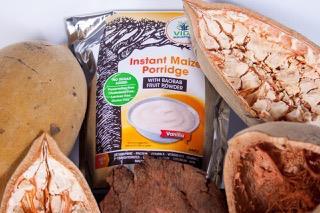
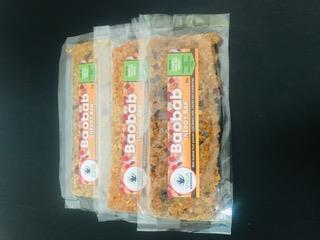


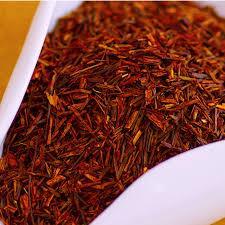
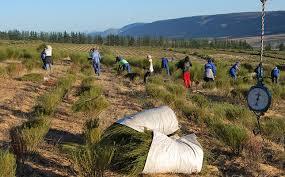
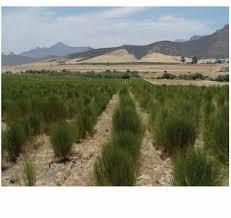
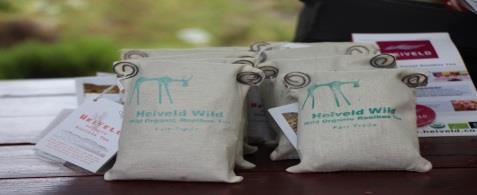
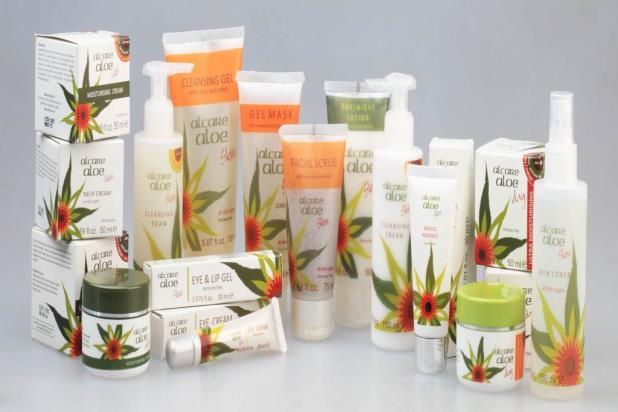
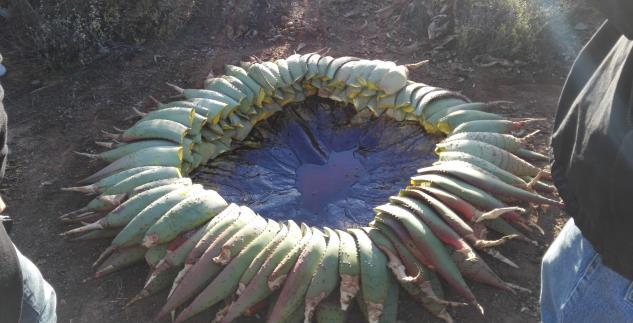
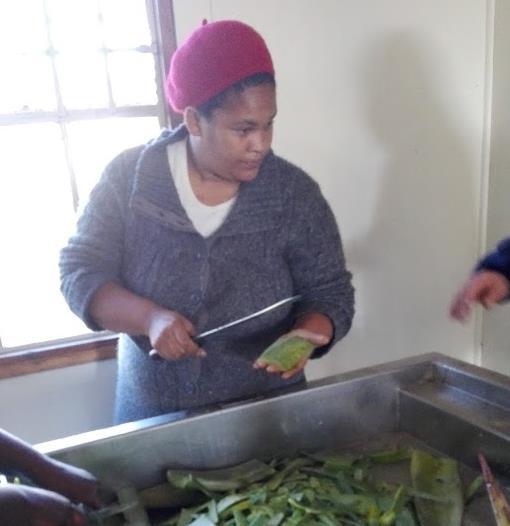

How do we increase the supply?
How do we increase demand and local value addition?
1
Promote a mass cultivation drive of 25 plant species of strategic importance and increase cultivation by 500 hectares per annum



2 Define management plans to ensure sustainable wild harvesting of 7 high value plant species to safeguard long term supply
3
Establish a coordinating and facilitating BioPANZA (Bio Products Advancement Network South Africa) to harness existing initiatives and to address the innovation chasm

Promote applied research, local processing, innovation and product development; and to promote the use and awareness of products with IBRs
4
5
Regulatory
Fast tracking amendments of Chapter 6 of National Environmental Management Biodiversity Act (NEM:BA) to ease compliance while ensuring protection of the rights and benefits of traditional knowledge (TK) holders and alignment with Nagoya Protocol on Access and Benefit Sharing
Improve efficiencies in the Bioprospecting Access and Benefit Sharing (BABS) permitting system

Transformation is a cross cutting essential

R22 260 700.00 million was shared by the industry with the beneficiary communities from the Marharhabe Kingdom in Eastern Cape in recognition of their traditional knowledge of pelargonium sidoides species. The Gaseleka and Hlongwane Communities in Limpopo benefitted from the CSIR Monatin project, Nourivier and Paulshoek communities benefitted from the Sceletium project acknowledging their traditional knowledge of the species. R12 million from the above total amount specifically forms part of the Industry - wide Rooibos Benefit Sharing Agreement made to the Khoi and San Councils in April 2022.
142 Bioprospecting/biotrade permits were issued to individuals and companies to-date facilitating research and development as well as for commercial trade of products involving indigenous biological resources and/or associated traditional knowledge (local and international), which demonstrate the potential of the biodiversity sector to contribute to the country’s development needs

93 Benefit sharing agreements have been concluded and approved promoting partnerships which results in the distribution of benefits (both monetary and non-monetary) to the communities that are custodians of the resource and the associated traditional knowledge.
21 SMMEs were trained as part of the capacity development programme whilst 16 SMMEs were supported to access new markets, develop new products and increase capacity.
The 6 sector development plans (for marula, baobab, aloe ferox, honey bush buchu and cluster of essential oils) that were completed during 2021 are in implementation phase. These plans identified and prioritised key strategic areas requiring intervention for sector growth and transformation
The Bioprospecting Access and Benefit Sharing (BABS) Electronic permitting system completed, tested and officials from management authorities trained. Expected to be operational by April 2023.
Budget:
US$: 6 210 046
ZAR: 93 150 690
Supporting ABS Compliant Landscapes
1. 1 x Benefit Sharing Agreement Developed: African Ginger: Initiated and will progress into 2023
2. 1 x Non-Monetary Benefit Sharing Mechanism Developed: Rooibos: Initiated and will progress into 2023
ABS Compliant Research and Development
1. Enterprise development in Tyefu community: Procurement pending finalisation
2. SMME grant support to Honeybush communities: Procurement pending finalisation
3. Training and empowerment to enter value chains: Tangible results in 2023
3. National Registration System (NRS) operational: Procurement pending finalisation ABS Compliant Community Empowerment and Improved Landscape Management
4. Improved access to materials and products: NC Hub operational, results in 2023
1. Northern Cape Bioprospecting Research and Development Hub: MOU in place (DFFE, ARC, DALRRD NC) 3 x Draft Best Management Practise Guidelines for management and cultivation of 3 key species

2. Registration application to SAHPRA for African ginger as a complementary medicine: 3 Ton supply secured, research finalised in 2023, registration in 2024
1. 3 x Resource Assessments (RA) (Honeybush, Rooibos, Pelargonium): Pelargonium RA complete
2. 3 x Non-Detriment Findings (NDF) (Honeybush, Rooibos, Pelargonium):
Resource Management
Pelargonium NDF complete
3. 1 x Updated Biodiversity Management Plan (BMP) (Pelargonium): Draft under stakeholder review- complete within 2023
4. National Conservation and Sustainable Use Standard and Certification System: National Biotrade Standards Framework completed in 202


Initiative 1

Review and amend Chapter 6 of National Environmental Management Biodiversity Act (NEMBA) to ease compliance while ensuring protection of the rights and benefits of traditional knowledge (TK) holders
Initiative 2
Review, amend and implement changes to Bioprospecting Access and Benefit Sharing (BABS) regulations to ease compliance by regulated entities
Initiative 3
Improve efficiencies in the Bioprospecting Access and Benefit Sharing (BABS) permitting system
• The Draft White Paper on the Conservation and Sustainable Use of South Africa’s Biodiversity was approved by Cabinet for public comments on 8 July 2022 and public consultations ensued between July and November 2022. The approval of the Draft White Paper will trigger the review of Chapter 6 of NEMBA and the National Biodiversity Economy Strategy
• National Biotrade Standards Framework in compliance with the Nagoya Protocol on Access and Benefit Sharing (ABS) is underway.
• Amendments of the regulations will follow the review of and completion of Chapter 6 of NEMBA on Bioprospecting Access and Benefit Sharing Regulations

• Activities are already underway to ease compliance by regulated entities and these include development of Bio-community Cultural Protocols (BCP) which affirm the rights of the communities over their indigenous genetic resources .
• Contrary to the previous arrangements where Bioprospecting Advisory Committees (BAC) were held quarterly, new developments led to the BAC being convened monthly to improve efficiencies.
• Capacity building and training workshops including permit application tools targeting Bioprospecting/Biotrade potential permit applicants such as academia and bioprospectors were developed and conducted.
• Various knowledge products have been developed to facilitate and ease compliance by the Bioprospecting Sector namely; Access and Benefit Sharing Handholding, Visualisation, Guideline for Benefit Sharing for Conservation and Sustainable Use and Guidelines for facilitate collaboration for Academic Researcher
Initiative 4
Develop and implement an electronic BABS permitting system and centralized database-

Development of the Bioprospecting Access and Benefit Sharing (BABS) online permitting system has been completed and tested with academics and bioprospecting sectors. Training has also been provided.
Bioprospecting Access and Benefit Sharing (BABS) online permitting system is expected to be officially launched in April 2023.
Initiative 5

Establish a Bio-Product Advancement Network of South Africa (BioPANZA) to coordinate the sector and address the innovation chasm.
• The Biopanza is comprised of five Clusters namely Finance, Innovation, Market Access, Sustainable Supply, Policy and Regulations.
• Four of the five clusters have since been established and these include Finance, Market Access , Innovation and the Sustainable Supply clusters.
• Development of the Bioproducts Advancement Network South Africa Website has been completed and uploading of final touches on content is in progress.
Initiative 6
Promotion of mass cultivation for 25 priority plant species
• 3828 ha have been cultivated with indigenous species since 2019.
• The Presidential Economic Stimulus pilot project involving 19 traditional authorities in Limpopo and Eastern Cape is in progress, i.e., appointment of Project Manager/s to implement the project is expected to be finalised in March 2023 with work expected to commence soon thereafter. This Pilot project will provide temporary employment to 2451 community members through mass cultivation of indigenous species 9
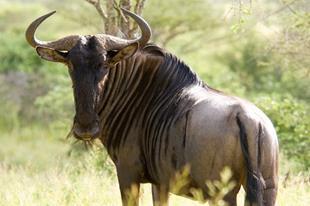
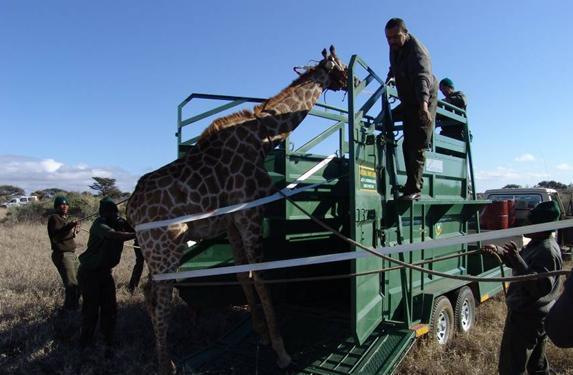
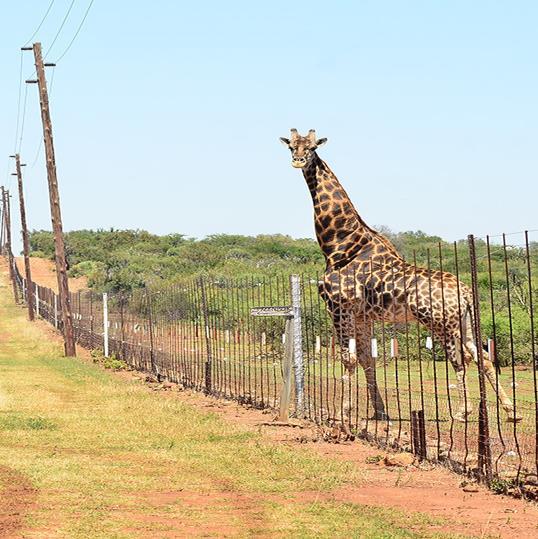
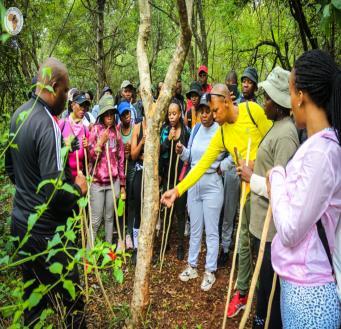
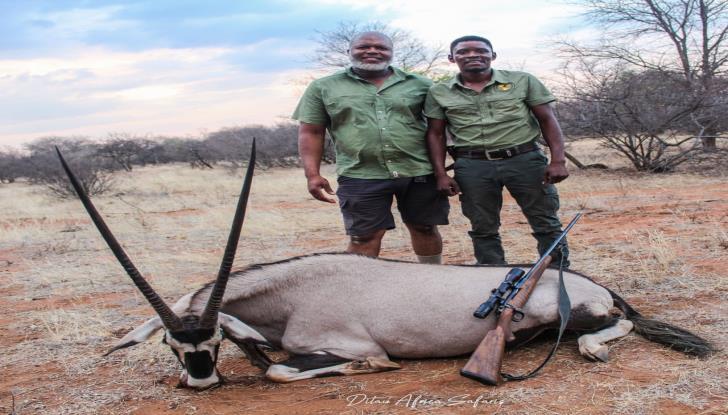
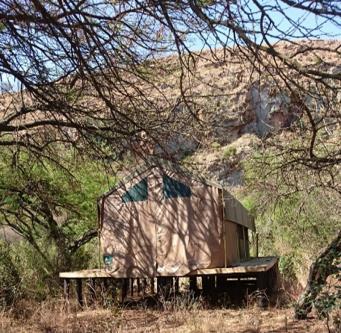
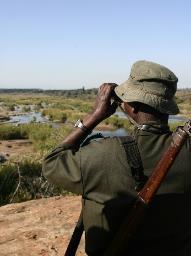

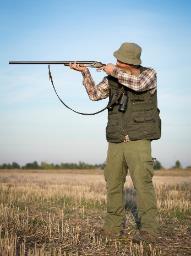
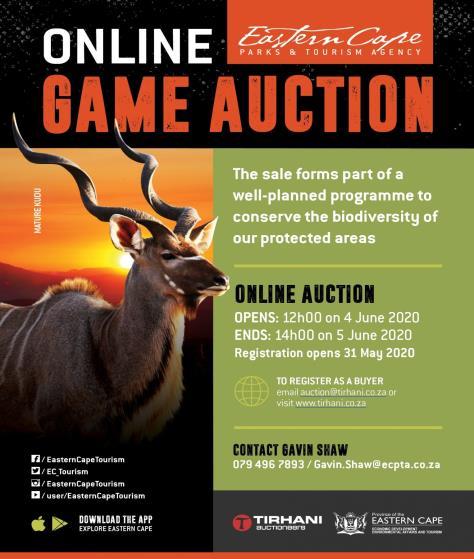
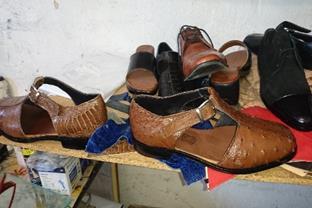
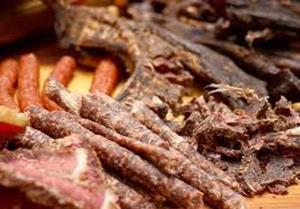
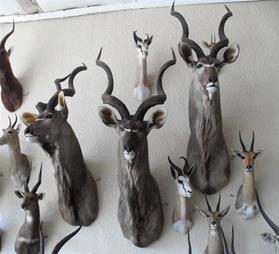
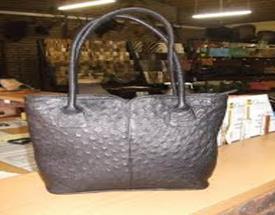


1 Identify and prioritise 10m Ha for transformation of wildlife economy
2 Coordinate existing support mechanisms under a ‘Wildlife Support Unit’ to efficiently support new entrants to the industry
3 Increase capacity and support for at least 300 Community Entities including community property agreements (CPAs), trusts and traditional authorities
4 Create supply-chain linkages and capacitate 4,000 SMMEs (new and existing) to locally capture the value of ancillary goods and services to the wildlife economy
5 Operationalise the uMfolozi Biodiversity Economy Node as a pilot for the wildlife node concept
6 Empower 4,000 emerging entrepreneurs and farmers through focused capacity-building programmes
i Develop a toolkit of effective wildlife business, stewardship and partnership models
Driving growth through promoting ‘value’ and products Creating an enabling environment for the wildlife sector
7 Formalise SA game meat market and create a network of game meat processing facilities
9 Create an enabling legislative environment through the amendment of NEMBA
8 Implement a campaign that drives participative transformation and consumer growth for wildlife-related activities and products
ii Promote sustainable use as a foundation for conservation and growth of biodiversity economy
iii Develop a strategic marketing campaign and value proposition for mixed game and livestock systems
iv Establish mechanisms to allow for holistic and integrated management of animal health and conflict issues at the livestockwildlife interface
v Fast track the development of norms and standards to actively manage and mitigate critical wildlife economy risks such as intensive and selective breeding, animal diseases and invasive species
10 Develop and implement wildlife industry standards
11 Implement a national wildlife economy branding scheme
12 Develop and implement an electronic wildlife permitting system and centralised database
13 “Re-position” the Wildlife Forum as an efficient interdepartmental/ industry collaboration and co-ordination platform to promote the benefits of the Wildlife Economy

14 Develop an integrated knowledge/ evidence generating and sharing platform to support the wildlife economy
15 Leverage protected areas to unlock economic potential
vi Develop, upskill and resource extension services to facilitate the growth of the wildlife economy

The novel Draft Game Meat Strategy for South Africa was approved by Cabinet and published for public comments on 18 July 2022. Public consultations ensued between July and September 2022, reached more than 2000 virtual and physical participants. The Strategy is earmarked for implementation once approved by Cabinet during 2023.


To date, over 2000 Previously Disadvantaged Individuals (PDIs) received accredited or non-accredited training on various SMMEs development interventions.

R10 million transferred in March 2022 by DFFE to SANParks for supporting Provinces, Entities and Management Authorities with game capture and translocation.

The first Ministerial Workshop on Transformation held in October 2022 emanated in the development of a Transformation Roadmap for the Biodiversity Economy.
Sustainability Standards and Certification Scheme for the Wildlife Ranches and game farms is underway, funded by UNDP-BIOFIN (i.e Biodiversity Finance Solution), 215 000 USD.


A total of 1889 youth participated in the programme
1st People & Parks Conference, Swadini, 2004: Robust programme action plan.
46 Co-management agreements are in place (KZN Wildlife 4,MP 8,Isimangaliso 8,NW 6,EC 2 and Limpopo 18)
2nd People & Parks Conference, Beaufort West, 2006: Establishment of community structure.
3rd People & Parks Conference, Mafikeng, 2008: 1st time handover of title deeds to communities.
107 Protected Areas ( SANParks 19,EC 11,FS 5,Gauteng 7,KZN 9,Limpopo 26,MP 11,NC 6 and NW 13)
52 legal bodies signed comanagement agreements (CPAs/Trust/Traditional Council With Co-Management Agreements)
4th People & Parks Conference, Empangeni, 2010: Best-practice community owned enterprises.
5th People & Parks Conference, Mangaung, 2012: Support by Rural Development Political principals.
6th People & Parks Conference, Umtata, 2014: Prioritisation of land claims settlement.
7th People & Parks Conference, Midrand, 2016: Inclusion of youth.
34 Protected Areas has comanagement agreements.
8th People & Parks Conference, Thohoyandou, 2018: Mainstreaming Biodiversity Economy into People and Parks Programme.
9th People & Parks Conference,Sandton,2022: National Co-management Framework and Biodiversity Transformation Framework


Initiative 1
Identify and prioritize 10m Ha for transformation of wildlife
18.5 million hectares identified and mapped.
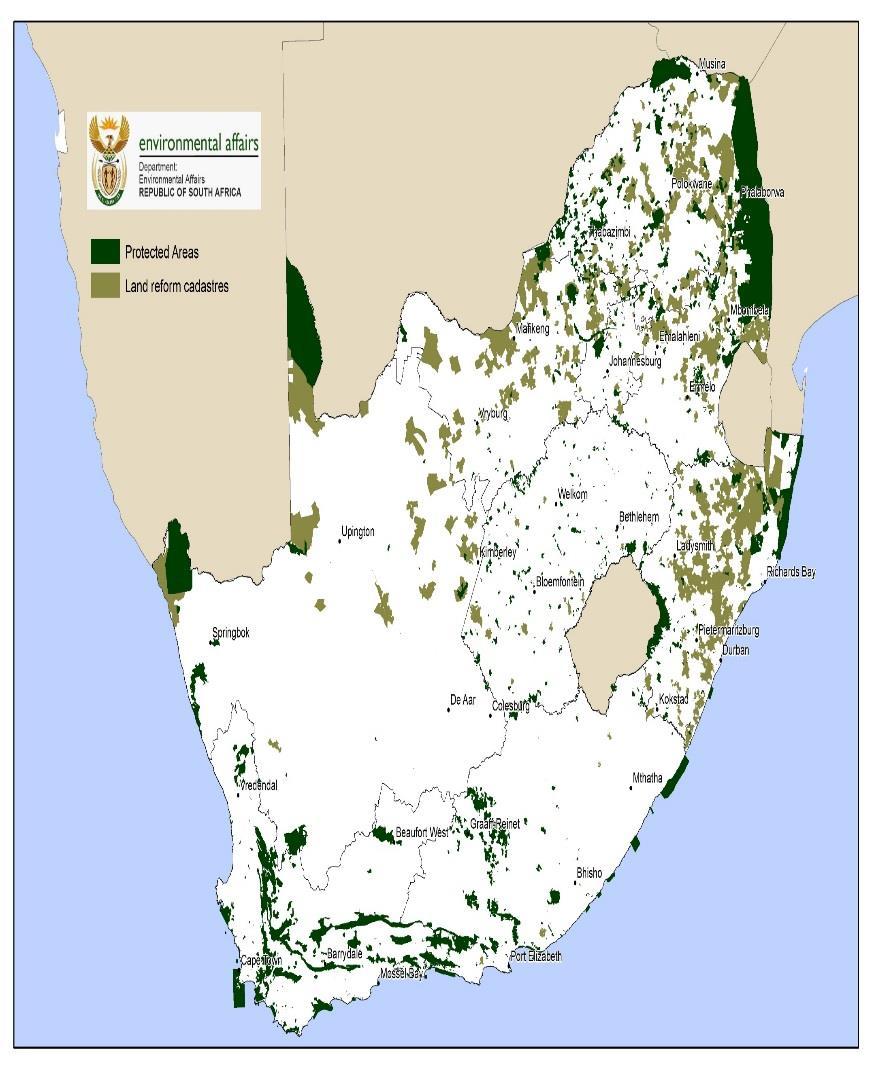
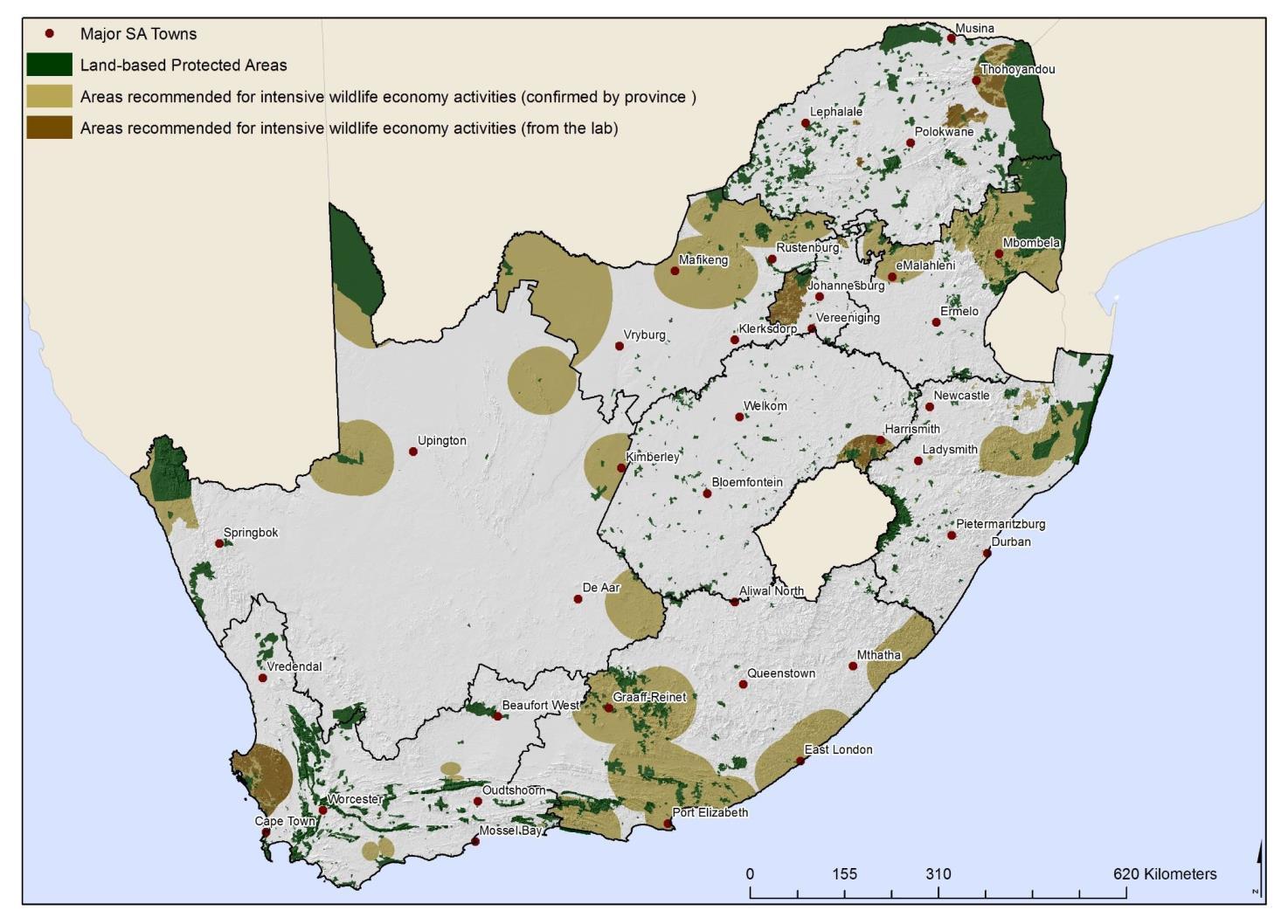
Initiative 2
Coordinate existing support mechanisms under a ‘Wildlife Support Unit’ to efficiently support new entrants to the industry
• Infrastructure Development: 76 emerging game farmers were being approved for funding for infrastructural development.
• The activation of biodiversity infrastructure projects involving Emcakwini in KZN, Swile Mavokweni in Mpumalanga, Kalema in Free State, Mazelfontein in Northern Cape and Mhinga Crocodile in Limpopo has been completed. Processes are underway to appoint contractors to implement these five projects.
• Through the SANParks implementation process, 6 EPIP funded projects have been activated and include Riemvansmaak in Northern Cape, Awelani in Limpopo , Baphiring in North West, Mahumane , Makuya , and Bedvula-Gidjana in Limpopo Province.

Cumulative number of game donated since 2016 –

2022:
-
-
2016-2019: 1483 ,
2019-2020: 556 ,

-
-
-
2020-2021: 0 (i.e COVID-19 period),
2021-2022: 837 (N.B not captured in the
Audited DFFE Annual Report),
2022-2023: 168
Cumulative total of heads of game donated: 3044
• R10 million was transferred in March 2022 by DFFE to SANParks for supporting Provinces, Entities and Management Authorities with game capture and translocation.
• MoU between DFFE and Department of Defence developed, finalised and vetted to support game donation programme to unlock approximately 6000 game for donation.

Initiative 3
Increase capacity and support for (at least) 300 CPA’s, trusts and traditional authorities
• Workshop on the White Paper Policy on Conservation and Sustainable Use held on the 9th of November 2022.
• Workshop on Game meat strategy held with CPAs on the 23rd September 2022
• 200 skills development undertaken in ISimangaliso between July and September 2022
• 67 young people underwent environmental education awareness between July and September 2022 in Western cape and KZN inclusive of 50 recruited as rhino ambassadors.
• 80 community local entrepreneurs trained on tourism and venture creation in KZN and Mpumalanga during July and September 2022.
Initiative 4
Create supply chain linkages and capacitate 4,000 SMMEs (new and existing) to locally capture the value of ancillary goods and services to the wildlife economy

• Over 80 SMMEs have been supported to exhibit their product offerings in the following platforms:

o 3rd Biodiversity Economy Indaba and Presidential launch;
o Mebala Ya Rona Conference and the Roma Nna Auction;
o Huntex ;
o Fire and Feast Meat Expo;
o Dallas Hunting Expo


o SCI hunting shows

• Through the DSBD partnership, 6 SMMEs operating within the game meat industry have been linked with Shoprite Checkers for incubation.

Initiative 5
Operationalise 11 biodiversity economy nodes, that enhance the economic potential of Protected and non ProtectedAreas
• A five star game lodge involving Amakhosi (Nkosi Mthembu and Biyela) in KZN Province, under the UMfolozi Big 5 game reserve and Babanango Game Reserve were completed and are fully operational with no less than 100 number of local community members employed. DFFE granted R10 million and R20 million towards infrastructure development respectively.
• GEF funding amounting to US $8.99 million was secured to support the operationalisation of three Biodiversity Economy Nodes: Kruger National Park BEN, Isimangaliso BEN and Addo-Amathole BEN. Two Coordinators already appointed.
• Processes to appoint service providers to develop feasibilities studies for BarbertonMakhonjwa, Loskop and iSimangaliso Nodes are underway.
Babanango Game Reserve-Zulu Rock Lodge


https://babanango.co.za/

Umfolozi Big 5 Game Reserve : Biyela and Mthembu lodge
https://www.hluhluwegamereserve.com/umfolozibig-5-game-reserve/

• Over 2000 SMMEs offered accredited and non accredited trainings.
Accredited trainings conducted in 2022:

• New Venture Creation training at iSimangaliso (35)
• New Venture Creation training at Kruger National Park (35)
• New Venture Creation training at Golden Gate National Park (35)
• New Venture Creation training in Eastern Cape (35)

• New Venture Creation training in Northern Cape (28)
• Ecotourism training in Mpumalanga (50)
• Business Management training in Cape Town (34)
Non-accredited trainings in 2022: In partnership with ServiceSETA and SANParks , 75 SMMEs comprising of Cooperative and NPO were trained in Golden Gate National Park and Kruger National Park , respectively

Initiative 7
Formalize SA game meat market and create a network of game meat processing facilities
• The novel Draft Game Meat Strategy for South Africa was approved by Cabinet and gazetted for public participation in July 2022. The draft strategy aims to contribute to food security, job creation, conservation through sustainable use of wildlife and transformation of the sector where PDIs and communities would participate in the entire game meat value chain.

• The DFFE facilitated a series of national virtual and provincial physical stakeholder consultations to solicit views from interested and affected parties on the gazetted Draft Game Meat Strategy for South Africa between July and September 2022. More than 2000 stakeholders participated virtually or physically.


• The DFFE co-hosted the Kasi game meat promotion in SOWETO during August 2022 to promote game meat consumption.


• Community-owned game meat abattoir within the Great Fish Nature Reserve is in final stage of completion funded by DFFE through EPIP. secure .

INVESTMENT PORTAL PROGRESS
• Biodiversity Investment portal was launched to support SMMEs pipeline and bankable/investible projects.

• Investment Portal went live in an official launch on the 23 September 2022 - Investment portal Link: www.biodiversityinvestment.co.za
• Social media has gone live with DFFE communications team running media through LinkedIn and twitter
• DFFE is currently engaged in the institutional and programmatic ownership of the portal from the appointed Service provider

• Engaged with the Management authorities and entities to load bankable opportunism on the portal
• There is an appointed brokerage and transaction advisor:
Working on an investor engagement strategy for loaded projects
Provides brokerage advise for any interest on programmes
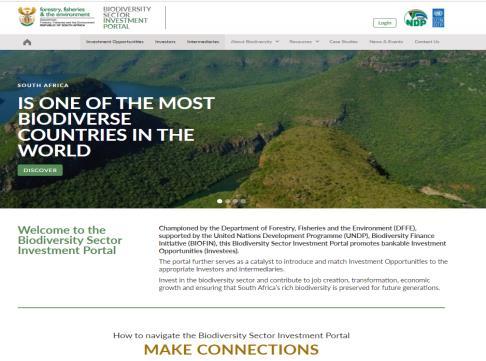

Intermediaries
▪ NGOs
▪ Transaction Advisory

▪ Sector Experts
▪ …
Investment Opportunities Investment Opportunities
▪ Biodiversity Economy
▪ Conservation Areas
▪ Ecological Infrastructure
Biodiversity Sector Investment Portal

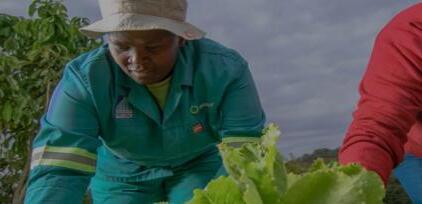
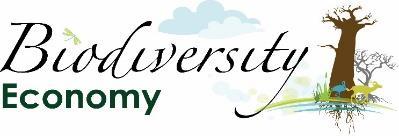
Investment Opportunities Investors Bankability criteria
Bankable opportunities

▪ Traditional Investors
▪ Impact investors
Business Case Sector
Information Marketing Connections
Investment models
▪ ESG Investors
▪ Development Institutions
▪ …
Initiative 9 Create an enabling legislative environment through the amendment of NEMBA
Initiative 10 and 11
Develop and implement wildlife industry standards and Implement a national wildlife economy branding scheme
The Draft White Paper on the Conservation and Sustainable Use of South Africa’s Biodiversity was approved by Cabinet for public comments on 8 July 2022 and public consultations ensued between August and November 2022. Once approved, the Draft White Paper will trigger the review of NEMBA and the National Biodiversity Economy Strategy
• The UNDP funded Sustainability Standards and Certification Scheme for the Wildlife Ranches and game farmers in progress, with a value of 215 000.00 USD:
Surveys on demand for certified wildlife products conducted and showed a high uptake by over 7000 Consumers

Sustainability Standards containing criteria for certification has been completed.

Establishment of the Certification Scheme in progress. The suggested name is Sustainable Wildlife Economy Council (SWEC).
• Potential benefits of the Certification Scheme includes improving reputation of the Wildlife Sector, market access, investor and consumer confidence, Incentivise conservation efforts

Initiative 12
Develop and implement an electronic wildlife permitting system and centralised database
Initiative 13
“Re-position” the Wildlife Forum as an efficient interdepartmental/ industry collaboration and co-ordination platform to promote the benefits of the Wildlife Economy

• Development of the TOPS and CITES permit system has been completed and tested and ManagementAuthorities trained to implement it.
• It is expected that the system will be officially launched in March 2023 with financial support from UNDP-BIOFIN and implemented from 1 April 2023.
• The revised Terms of Reference for the Wildlife Forum was approved and is now in full operation
• Quarterly wildlife forums sessions are conducted on a regular basis with discussions focusing on conservation and sustainable use and related matters.
• Representation includes 29 associations, 9 Management Authorities, 7 National Department and now there is proposal to include Department of Labour.
Initiative 14
Develop an integrated knowledge/ evidence generating and sharing platform to support the wildlife economy
• The DFFE has developed a MOU in partnership with the University of Venda and the MOU is currently going through legal vetting processes.
• Similar MOU with other institutions of higher learning are being envisaged in the near future.
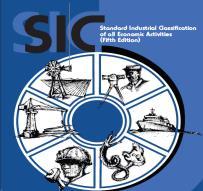

• DFFE, SANBI and StatsSA are currently working together to develop a first set of accounts specifically measuring the Biodiversity Economy, in respect of employment and GDP contribution
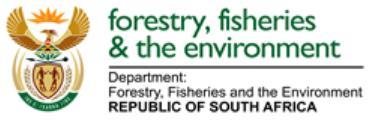

• South Africa has a wealth of biodiversity assets and ecological infrastructure that contributes to inclusive growth and development
• Helps to make the case for investment in biodiversity - Including in managing and conserving the biodiversity and ecosystem assets that underpin the biodiversity economy

Industry Codes
Product Codes
Occupation Codes
BESA
• GDP
• Employment Numbers
• Measured by StatsSA
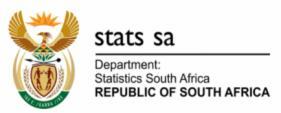
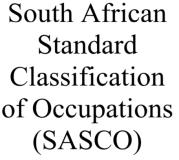

• This initiative is implemented through the People and Parks Programme, consisting of 5 thematic areas .
• The progress report below for quarter 2 received from the following Management Authorities: Cape Nature, SANParks , LEDET, iSimangaliso, Eastern Cape (ECPTA), North West (NWPB), Gauteng (GDARD) and Northern Cape (DAEALRRD)

Summary of the report:
THEMATIC AREA PROGRESS
1. Economic development
- Job opportunities created : 614
- 466667 bundles of grass harvested with a monetary value of R466 667.00
- 91 community members harvested broom grass estimated at 978kg.
- 5 grass harvesting permits issued.
-
3 contractors harvested firewood in Tsitsikamma National Park.
- 150 impala skins were also donated to 8 local enterprises in KNP.
- 850kg elephant meat was delivered to Tribal Councils in various areas
2. Restoration of Land Rights
- CMC/CPA meetings held – 12
-
1 Co-management agreements finalized
- Land claims finalized - The QwaQwa land claim settlement process has been concluded. The claimants have signed the settlement agreement and beneficiation package in respect of the properties claimed inside Golden Gate Highlands National Park.
3. Capacity Building, Awareness & Education Training programme: 168
Workshops/awareness campaigns :106
4. Co-Governance
Provincial People and Parks meetings : 40 meetings

Committee meetings/Park Forums/Regional meetings : 27
5. Community stewardship
• Celebration of calendar month events - 7 events held
• 7 new registrations for fishing and 16 renewals were recorded for the Tsitsikamma MPA
• 34 catches were registered for the months of July and August 2022.
• Three (3) PPP opportunities awarded to EME’s, QSE’s and affirmative enterprises - One PPP opportunity awarded
Upgrade and renovations to Mvubu Lodge; Upgrade to Sam Knott Interpretative Centre & Sam Knott cabins; Renovations and construction of ablutions facilities at Grasslands Centre; Upgrade of day visitor facilities at Fish River to include ablution facilities and braai area.
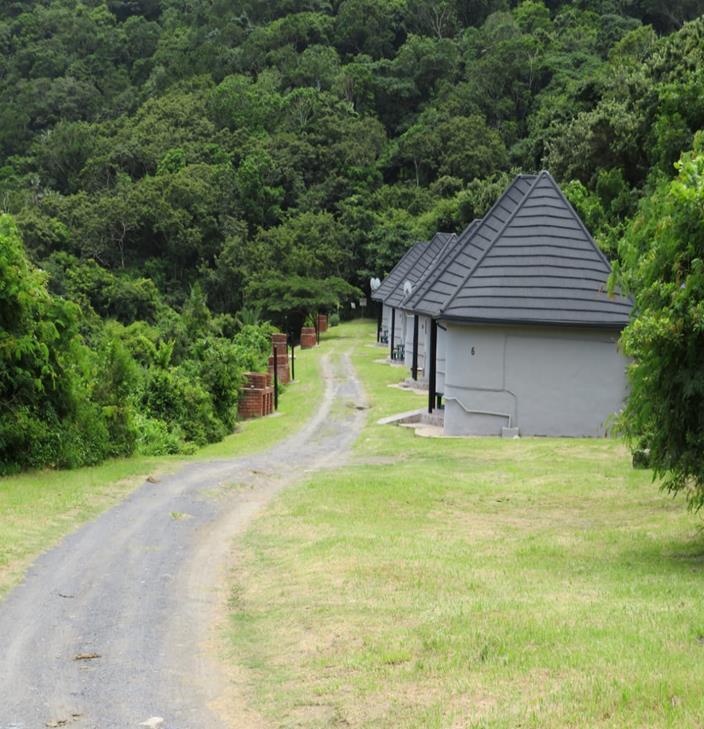
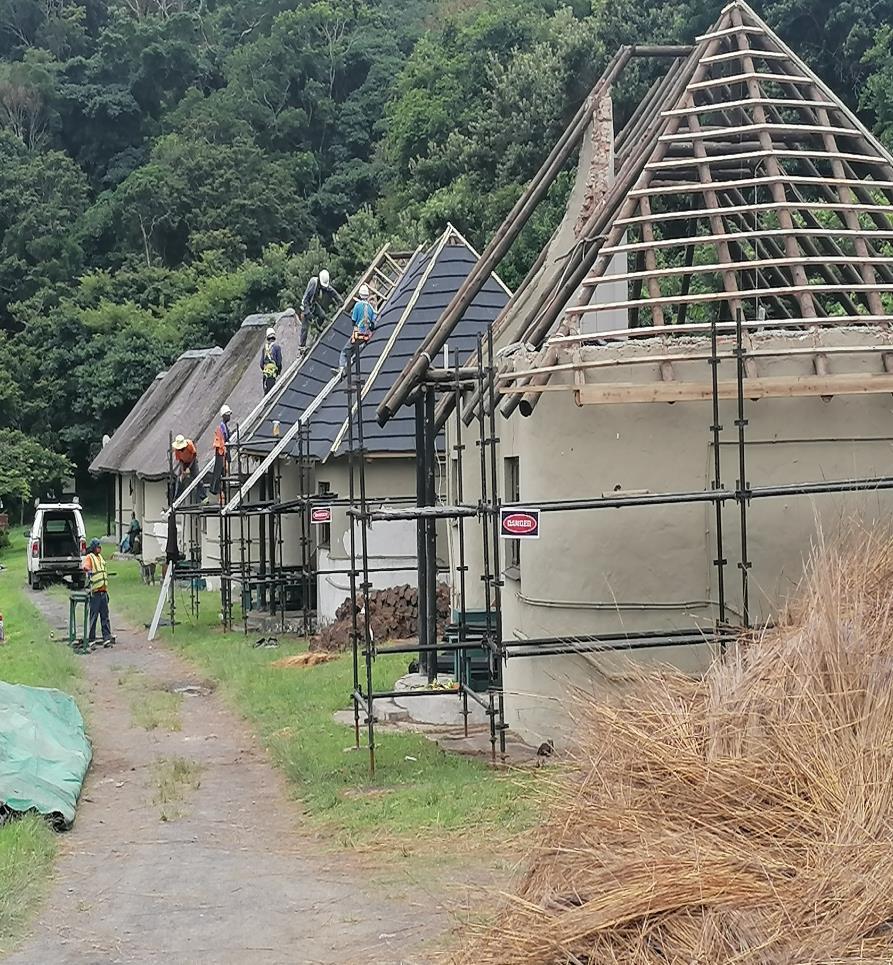

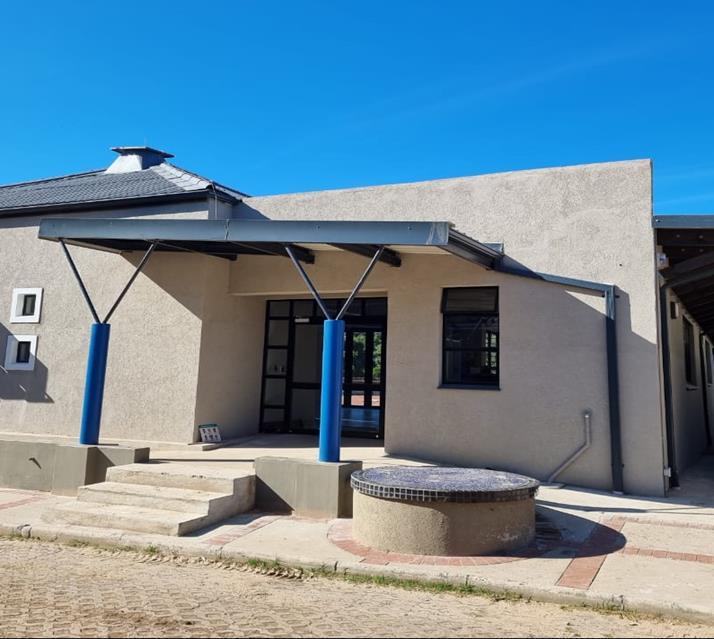
Infrastructure development and upgrade in ELCM Nature Reserve that includes:

Construction of Tourists
Accommodation - 32 sleeper bed units; Renovations and alterations to Staff Accommodation.
Alterations to existing exhibition hall & display room into restaurant and kitchen.
External Works - including paving, parking spaces and walkways.
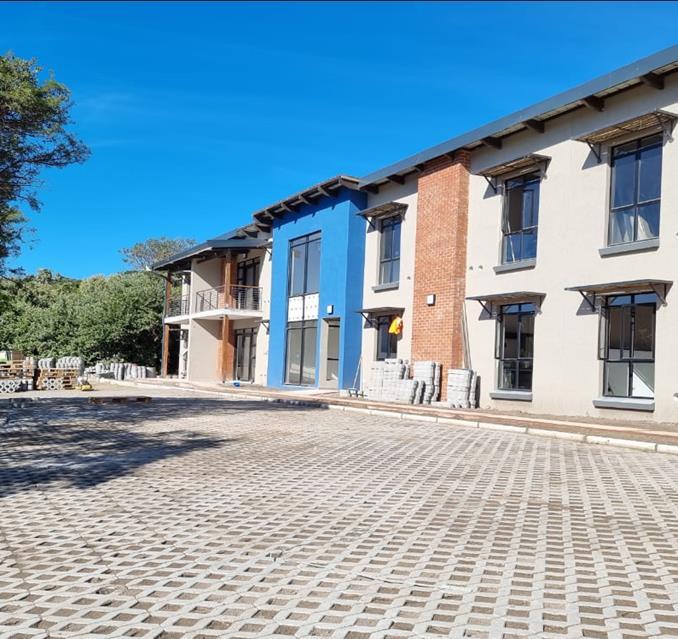
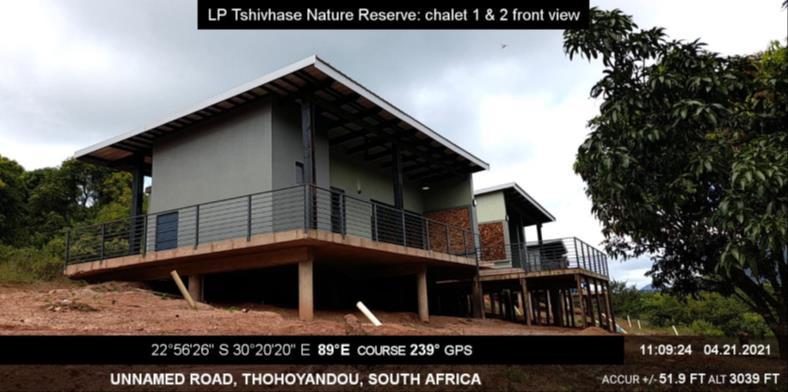
Development and upgrading of infrastructure in and around protected areas

Overnight visitor and staff accommodation
Administration buildings and conference facilities
Roads and fence within the protected areas
Development of commercial assets for communities in and around protected areas – community owned hospitality establishments - curios and tuck shops, amphitheaters and exhibition areas
Support to ancillary services and SMME development complementary to the protected areas - facilities, refuse removal
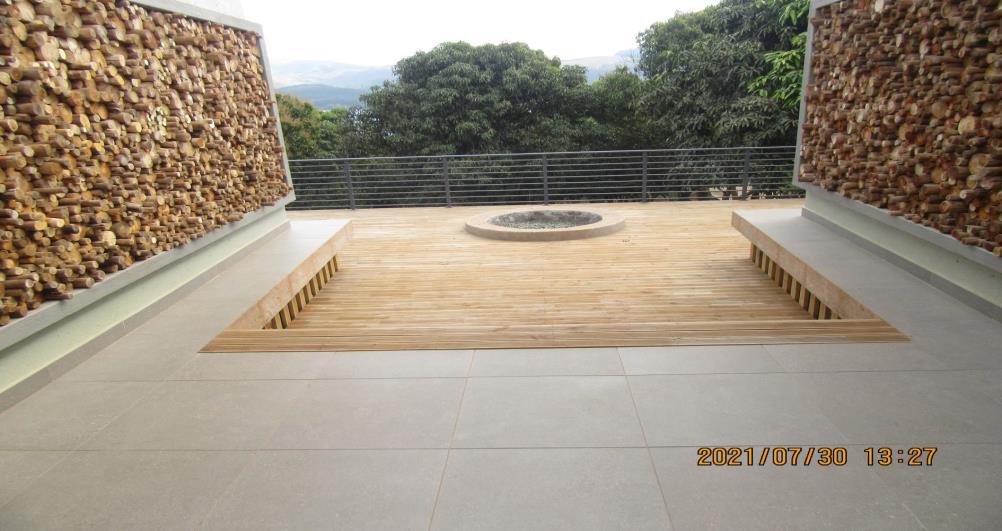
Completed swimming pool
Tourists' infrastructure development and upgrade in Lekgalameetsi Nature Reserve that included:
Construction of swimming pool and braai area.
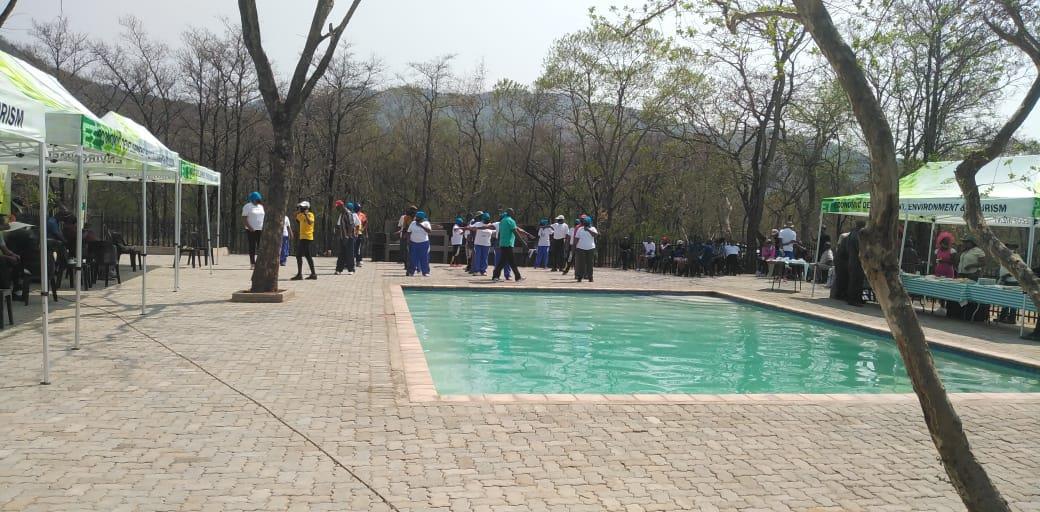
Construction of roads and paving of pathways.

Construction of camping sites.
Construction of shared facilities.
Construction of laundry facilities.
Staff accommodation and other tourist facilities upgraded. (single storey chalets family chalets x5; double storey chalets x11; restaurant building x1; store room x2; laundry room x1; braai area x1; hostel block x1 and conference hall x1


1. DFFE AND DSBD Focuses on the implementation of three DFFE Phakisa programmes: Biodiversity Economy, Oceans and Coast and Chemical and Waste with special attention to incubating respective SMMEs.

2. DFFE AND DALRRD Focuses on all Branches of the Department. And ensure alignment of legislation.
3. DFFE AND DTA Focuses on all areas of mutual interest including the National House of Traditional and Khoi-san Leaders.
Biodiversity Finance Initiative (BIOFIN) Programme funded by UNDP2014-2022, which has identified financial solutions to unlock finance for biodiversity and conservation. Phase II extended to 2025 with additional budget of USD 250 000 bringing total to USD 2.7m. 8 finance solutions are currently under implementation with project managers within DFFE Finance Solution
Completed Not started In progress
FS 1 - Growing protected area own revenue and
in four provinces
Improve the financial sustainability of protected areas in four provinces by development of plans for optimizing and diversifying revenue streams and by improving cost efficiencies. Supports Management Authorities in identifying new mechanisms for sourcing revenue to fulfil their conservation management
FS 2 - Reform of property rates legislation, interpretation and application to Pas

Ensure correct interpretation of the legislation/standardize the approach to rate protected areas correctly
• Draft plans produced for 4 PAs
• Baseline scoresheet assessment conducted
• Implementation for provinces
• Assessment conducted
• Study found 60% PA are have incorrect application of rates
• Currently with SALGA for review and implementation
FS 3 -

Develop a plan and value proposition to secure adequate resourcing of biodiversity stewardship capacity and operational budget in provinces. Clearly demonstrated that the state benefits from substantial cost savings when establishing and managing protected areas through biodiversity stewardship programs
FS 4 – Biodiversity tax incentives
Solution focuses on the amendment of Section 37C of the Income Tax Act.
• Value proposition and policy recommendations completed
• Report suggest R100m pa annum needed to catalyze the project
• Solution on hold – no strong appetite to continue from treasury
Finance Solution
FS 5 - Improved biodiversity offset modality for protected area expansion
Seeks to identify and create a suitable modality for more effective implementation of biodiversity offset decisions, resulting in priority biodiversity ecosystems being effectively conserved.
FS 6 – Development/implementation of voluntary market-based certification scheme in the wildlife sector

Sims to design and implement a sector-wide voluntary market-based certification scheme that is supported by key sector stakeholders and that incentivizes environmentally and socially sustainable practices. System must be cost effective while maintaining a high standard
FS 7 Biodiversity Sector Investment Portal

Develop a Biodiversity Economy Investment Portal to provide an opportunity to profile investment opportunities identified in priority Biodiversity Stewardship sites and Conservation Areas
FS 8 Improving the effectiveness of permits
Aims to recommend a robust regulatory system for implementation for an appropriate framework for determining cost-reflective fees/fee updates. Consider retaining of related funds related at the sectoral level.
• Solution has just begun – collaboration with SANBI and SANPARKS for the pilot
• Develop a digital offset register
• Standards and certification framework draft will be finalized in Q4
• Business case for certification Q4
• Demand study has been completed
• BIOFIN Solution mostly complete
• Portal is live
• Extension and support ongoing
• Assessment and policy brief completed
• R7.5 million/yr. of forgone revenue due
• TOPS permits pricing currently under review for provinces to implement
ABS Access and Benefit Sharing
ARC Agriculture Research Council
BABS Bioprospecting Access and Benefit Sharing
BESA Biodiversity Economy Satellite Account
BIOFIN Biodiversity Finance Initiative
BIOPANZA Biodiversity Advancement Network South Africa
CPAs Community Property Associations
CMC Comanagement Management Committee
COGTA
DALRRD
DFFE
DSBD
DOD
DTIC
Department of Cooperative Governance and Traditional Affairs
Department of Agriculture Land Reform and Rural Development
Department of Forestry Fisheries and the Environment
Department of Small Business Development
Department of Defence
Department of Trade Industry and Competition
GDP Gross Domestic Product
IBRs Indigenous Biological Resources
MOU
Memorandum of Understanding
NBES National Biodiversity Economy Strategy
NCA National Capital Accounts
NHTKL National House of Traditional and Khoisan Leaders
NEM:BA National Environmental Management Biodiversity Act


SANBI South African National Biodiversity Institute
SANPARKS South African National Parks
SWEC Sustainable Wildlife Economy Council
SMMEs Small Medium Micro Enterprises
THPs Traditional Health Practioners
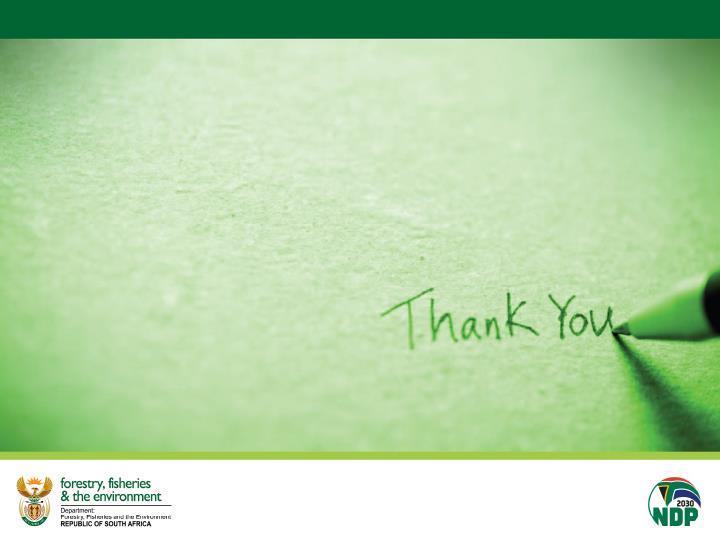 Ms Flora Mokgohloa
Ms Flora Mokgohloa
DDG: Biodiversity & Conservation Branch

Department of Forestry, Fisheries and the environment
Tel: 012 399 9171 | Mobile: 066 112 3758
Website: http://www.environment.gov.za
Address: The Environment House, 473 Steve Biko Road, Arcadia, Pretoria, 0083